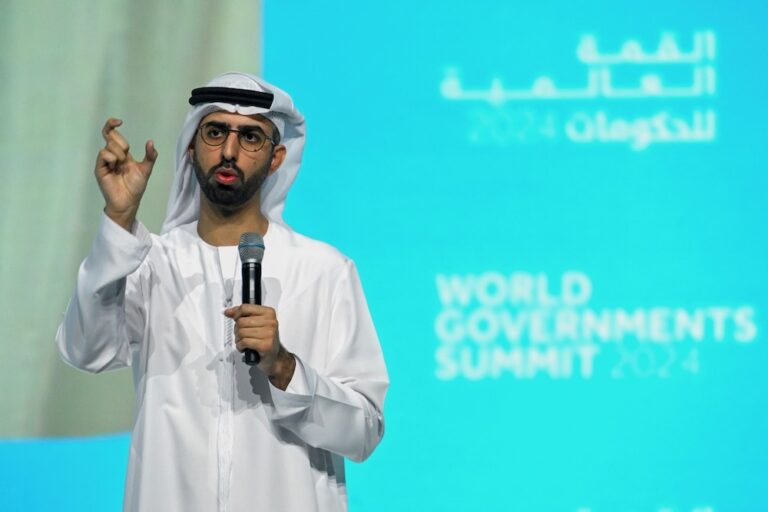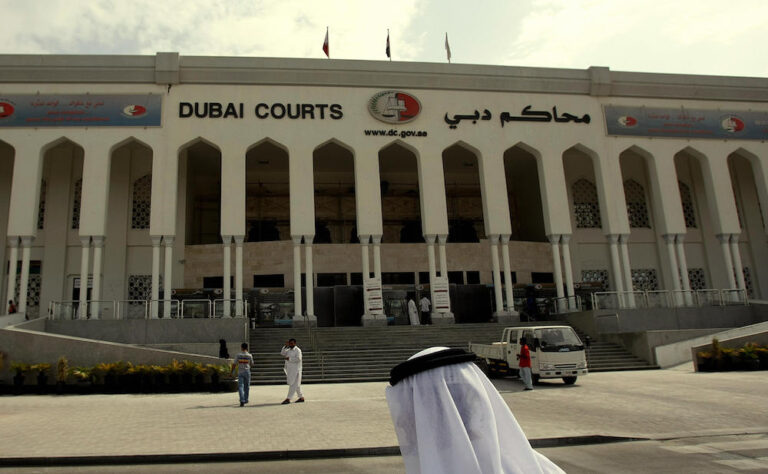Ahmed Abd al-Khaleq is one of a group of activists who had been jailed from April to November 2011 for peacefully advocating democratic reforms.
(Human Rights Watch/IFEX) – Beirut, June 15, 2012 – United Arab Emirates (UAE) authorities should halt plans to expel an activist and blogger to Thailand on July 16, 2012, and immediately free him, Human Rights Watch said today. Authorities have detained Ahmed Abd al-Khaleq, an advocate for the rights of stateless residents known as Bidun, without charge or explanation since May 22.
Abd al-Khaleq, 35, is himself a Bidun, which translates as “without,” but was born and has lived all his life in the UAE. In June, prison authorities told him to choose between indefinite detention at the al-Sadr prison in Abu Dhabi or exile to one of a list of countries. He agreed go to Thailand, though he has no connection to Thailand and has never traveled outside the UAE. It appears unlikely that UAE authorities will allow him to return, Human Rights Watch said.
“UAE authorities are trying to make it appear as though Ahmed Abd al-Khaleq is choosing to leave the country on his own volition, but this is a cruel and unlawful expulsion by duress, plain and simple,” said Sarah Leah Whitson, Middle East director at Human Rights Watch. “The UAE authorities are ever creative in coming up with outrageous tactics to silence dissenting voices.”
Authorities detained Abd al-Khaleq after summoning him to the immigration department of the Interior Ministry in the Ajman emirate, local activists told Human Rights Watch. Local activists told Human Rights Watch that he had applied for Comoros citizenship under pressure from UAE authorities, who told him that obtaining a nationality was a necessary step in regularizing his residency status in the UAE, and had been notified the day before that it had been approved. He has no connection to the Comoros and has never visited the islands. If expelled, Abd al-Khaleq would leave behind his parents and seven sisters, all of whom were born in the UAE and have never left the country.
A local activist whom Abd al-Khaleq has contacted twice from prison told Human Rights Watch that authorities initially informed him that he would be deported to the Comoros immediately, but then took no action for several weeks. In June, authorities presented Abd al-Khaleq with a list of several countries to which he could go, including Iran, Pakistan, Bangladesh, India, and Thailand. Fearing indefinite detention, Abd al-Khaleq reluctantly selected Thailand, though he has no prospect of earning a legal income there and does not know if he will be allowed to stay once his visa expires, the activist said.
On July 3, the prison called Abd al-Khaleq’s father and asked him to buy a plane ticket and to apply for a Thai visa for his son. Abd al-Khaleq’s father went to al-Sadr prison and collected Abd al-Khaleq’s Comoros passport to apply for the visa, which Thai authorities issued on July 5.
Photos circulated by family members of Abd al-Khaleq’s Comoros passport, which Human Rights Watch has viewed, show a single-entry tourist visa for Thailand that expires on October 4. The visa explicitly prohibits Abd al-Khaleq from working while he is in the country.
Abd al-Khaleq’s blog, Emaraty Bedoon, hosts videos and statements highlighting the plight of stateless residents. According to Refugees International, between 10,000 and 100,000 Bidun live in the UAE. Because of their stateless status, they face severe obstacles in many areas such as access to healthcare and education, and many live in poverty. Many trace their origins to nomadic tribes that previously moved freely around the gulf region or later immigrants living in the UAE who failed to register for nationality when the country was formed in 1971.


